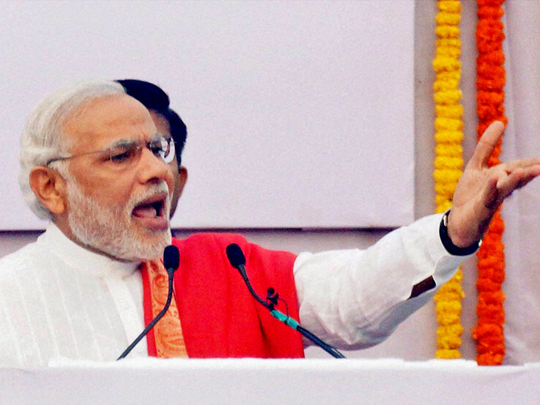
Two Indian newspapers are trying their best to normalise relations with Pakistan through bilateral talks and people-to-people contact. The Times of India and Pakistan’s Jang jointly run a concerted Aman Ki Asha or Hope for Peace campaign to bring South Asian nuclear neighbours closer. Indian Express, on the other hand, regularly publishes pieces by Pakistani commentator Khalid Ahmad whose insightful writings advocate peace at any cost. He articulates the desire of liberal and secular sections in both nations that want India and Pakistan to live as brothers and not as enemies.
Last week, Indian Express took a step further ahead. It hosted Pakistani journalist Hamid Mir, executive editor of Geo TV and strategic affairs specialist, at Idea Exchange Programme, a roundtable where Express editors pick the brain of a knowledgeable guest. The conversation, often animated, is recorded and printed for readers to enjoy at leisure.
Mir and Express evidently got along like a house on fire. Express believes in what it calls “journalism of courage”. It has also coined a catchy slogan: ‘Others cover — we uncover’. Mir too has enviable credentials. He has interviewed Osama Bin Laden thrice, including a post-9/11 meeting, and Mullah Omar besides several other Al Qaida and Taliban leaders. Naturally, Express editors wanted to hear inside stories of his rendezvous with the big boys of global jihad. And Mir the raconteur didn’t disappoint them. But it was while recalling his numerous trysts with Maulana Asim Umar, who was publicly appointed chief of Al Qaida’s south Asia chapter on September 4 this year, that Mir dropped a bombshell by revealing that Umar is an Indian Muslim and that too from Gujarat!
Mir deserves India’s collective gratitude for putting Umar’s nationality and ethnicity in the public domain. Maybe India’s security establishment was aware of Umar’s background long before Mir unveiled it. But ordinary Indians, which includes journalists and commentators like me, first heard of Umar in 2013 when he circulated a video exhorting Indian Muslims to sign up. Then came the September 4 announcement appointing him Al Qaida’s regional chief. But we have never known that he is an Indian from the state of Gujarat — known the world over for the gruesome massacre of Muslims by Hindu extremists, backed by the administration then headed by Narendra Modi, now India’s Prime Minister.
Mir disclosed that he first met Umar in Afghanistan in 2005 — three years after the pre-meditated, state-sponsored violence against Muslims shook Gujarat. While all forms of terrorism must be unequivocally condemned, Mir’s revelation begs the question: Did Gujarat’s anti-Muslim pogrom that Modi presided over push Umar into Al Qaida’s arms? Did the Hindu right-Indian state nexus compel Umar to cross over and pick up the gun to settle scores?
Some may say these questions are hypothetical, but civil society, particularly Express, must search for answers to these troubling posers in the public interest, even if they appear to be conjectural.
My questions are legitimate because Indian security officials say that the country’s homegrown jihadist outfit, Indian Mujahideen (IM) — accused of triggering explosions 18 times in 14 cities, killing hundreds since 2005 — has operational links with Al Qaida and the Taliban anyway. In a chargesheet filed against IM operatives in a terror case in 2013, the National Investigation Agency (NIA) officially recorded that IM “was formed in 2003 after ultra radicalised Muslim youth segregated from the Student Islamic Movement of India due to communal mobilisation caused by factors like the riots in Gujarat in 2002 after the Godhra train-burning incident and the Babri Masjid demolition”.
In the light of NIA’s candid admission in court, it is imperative to find out whether Umar did a stint with IM before fleeing India to join Al Qaida, where his stars are clearly on the rise.
Unfortunately, the Gujarat riots will cast their shadow on Modi’s present job every now and then until he is acquitted by the apex court. He is still under a cloud. Criminal cases filed against Modi or his Man Friday Amit Shah are far from over. So the prime minister’s past is bound to be raked up whenever critical new information like Umar’s Gujarati origin surfaces.
It does not give me any pleasure talking about India’s prime minister and a wanted Al Qaida ideologue in the same breath, or wondering aloud whether the high-profile fugitive is a byproduct of the barbaric violence that Muslims were subjected to 12 years ago.
But the Indian prime minister himself is not interested in a make-over. He is pretty cool with his profile as a divisive figure. He may dangle the carrot of ‘development’ or ‘corruption-free’ governance, but his main objective still is to polarise Hindus and Muslims for political gain. There is no other explanation for Modi’s call for a 10-year moratorium on Hindu-Muslim strife in his Independence Day address, which is a cause for concern.
Moratorium means a temporary or time-bound suspension. Modi could have declared that he would ensure Hindu-Muslim riots never erupt again. But that is obviously not his goal. All that he wants is a temporary halt — just a comma, not a full stop. The duration of the cap — 10 years — is in sync with Modi’s persistent appeal to voters to give him two terms in power. So are we to conclude that Modi wants peace only during his rule? And that he may engineer communal riots when he is in the opposition!
S.N.M. Abdi is a noted Indian journalist and commentator.









